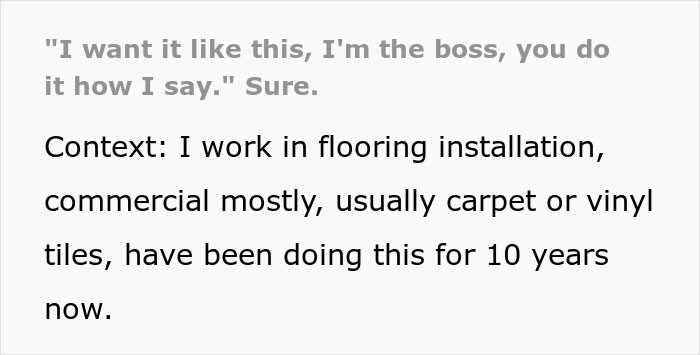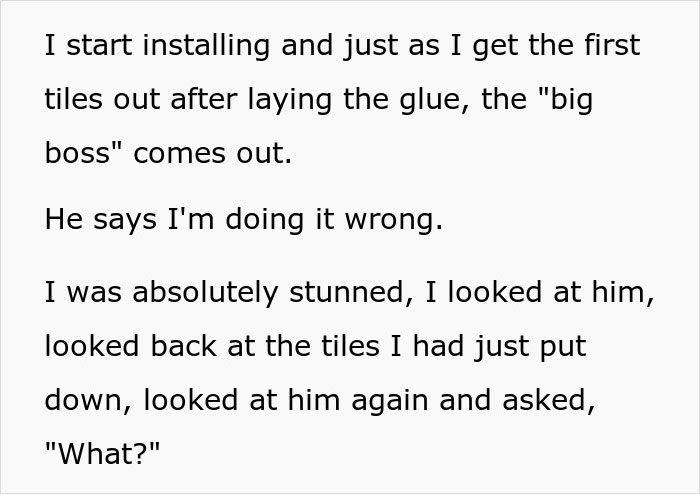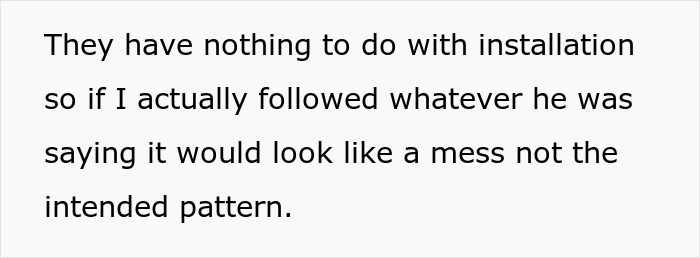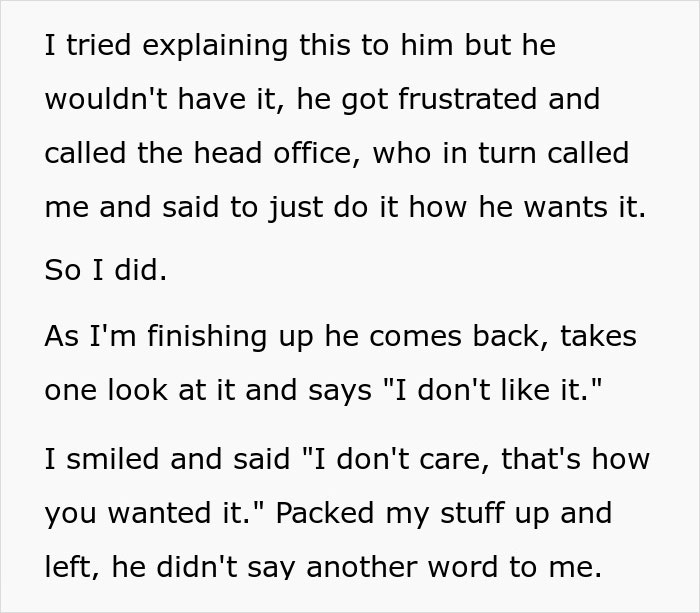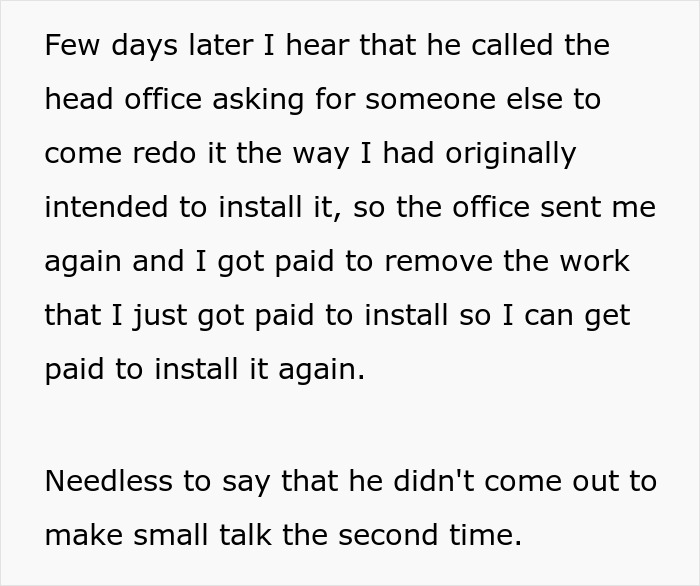No, the customer isn’t always right! They might have certain preferences or different ideas on how to do things, sure. But if they act too entitled and can’t trust qualified experts to get things right, those clients can end up hurting their own interests.
Case in point, u/TheGrandmasterGrizz, a flooring installation specialist, recently went viral after opening up about a particularly difficult client he had to deal with. According to him, the ‘big boss’ thought he knew how to do the job better than the contractor, only to regret it almost immediately. Scroll down for a healthy dose of malicious compliance and a reminder to stay humble and shy away from micromanaging.
Bored Panda has reached out to the author for comment via Reddit, and we’ll update the article once we hear back from him!
If you hire a pro to do a job for you, the best thing you can do is to let them apply their skills and experience without bothering them
Image credits: Skitterphoto (not the actual image)
One contractor revealed how a client of his started criticizing his work from the get-go
Image credits: Thirdman (not the actual image)
Image credits: TheGrandmasterGrizz
There is a world of difference between being curious about someone’s craft and trying to control their actions
There’s nothing like a good, healthy dose of malicious compliance to remind someone that they’re not infallible. Sure, to them, their ideas sound like gold. But some of them are going to be far from ‘perfect.’
Any good manager (heck, any emotionally intelligent human being) knows how to take feedback well. They’re willing to listen to other opinions. They don’t get stuck on a single idea. They actually entertain the possibility that they might be (slightly) wrong. And they know the difference between positive criticism and someone attacking their ideas baselessly.
Or, to put it bluntly, unless you have a similar wealth of experience doing contracting work, it might be best to set your ego aside and let the people you hired do their jobs.
If you’re genuinely interested in learning about their jobs, you can always ask the specialists about what they’re doing. The odds are that they’d be happy to share some of their hard-earned wisdom with you. However, you should be coming from a place of curiosity and respect, not suspicion and arrogance.
Image credits: Andrea Piacquadio (not the actual image)
Micromanaging others is only going to lead to lots of frustration
Meanwhile, if you can’t trust the contractors to do the job you paid them for, why bother hiring them in the first place? That, dear Pandas, is a sign of someone who’s probably a micromanager. They have a particular way of ‘leading’ their team at work, and some of that behavior spreads into other areas of their lives.
In short, they want control. They have a specific understanding of how things should be done in life, and they hate it when someone deviates from this… even if that way gets similar or better results.
Micromanagers also hate delegating tasks: they have a ‘if you want it done right, do it yourself’ mindset. But if they do delegate, they demand constant updates, watch you work, and criticize everything you do. They value the details so much that they sometimes forget to look at the big picture. And they’ll never truly be satisfied with the quality of your work, even if, objectively, you’re doing a stellar job.
Meanwhile, this complete lack of trust means that micromanagers demotivate and frustrate their teams. They can end up pushing qualified employees away simply because their character creates a toxic workplace environment. Who would want to work for long for someone who doesn’t trust you, constantly criticizes you, and never thinks what you do will ever be enough? It’d be exhausting.
Image credits: Bidvine (not the actual image)
Becoming more self-aware and emotionally intelligent won’t happen overnight, but it’s a good goal to aim for
If you’re an employee, you can always directly talk to your micromanager about how their behavior affects you. Or, if you think it might be too awkward or difficult to do this, you can always reach out to human resources or have an honest chat with someone who’s higher up in the corporate food chain. And if things don’t work out, you can always find another, better job.
On the flip side, contractors can always set their own firm boundaries at work. If they’re disrespected, they can refuse to finish the job. Or they can blacklist the client in the future. The sign of a good boss is that they’ll step in to protect their employees if they’re harassed while on the job.
There’s no silver bullet to becoming a more trusting, relaxed, and generally ‘chill’ person. It’ll take a lot of time and deviation to cultivate more self-awareness, empathy, and humility. The first step is embracing the fact that you might have made a mistake and recognizing that you might need to change. Even if just a little. A heartfelt apology goes a long way, too!
What would you have done if you were in u/TheGrandmasterGrizz’s shoes, dear Pandas? Do you think the way he handled the client’s request was the best way to react? Have you ever had to deal with any know-it-all clients? Let us know in the comments!
Image credits: Mikael Blomkvist (not the actual image)
Later, the author spilled the tea about a few more details
A lot of readers wanted to have their points of view heard. Here’s what they said in the comments







